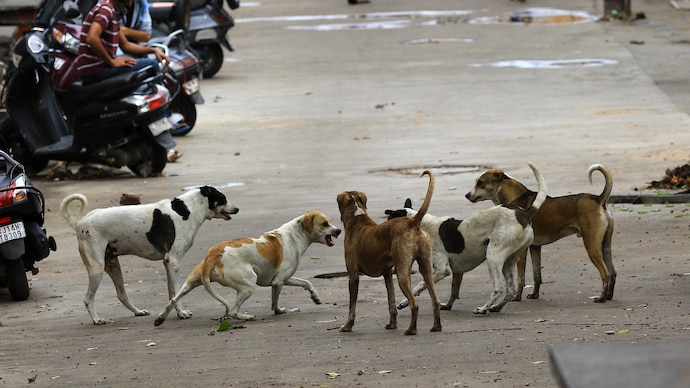India’s Supreme Court mandated the immediate removal of all stray dogs from public spaces in Delhi and its neighboring regions, directing authorities to relocate them to designated shelters within eight weeks. This directive aims to address the escalating concerns over public safety, particularly the rising incidents of dog bites and rabies transmissions.
The court’s order encompasses the National Capital Territory of Delhi, Noida, Gurugram, and Ghaziabad, instructing local civic bodies to commence the collection and transfer of stray dogs to shelters equipped with adequate facilities and surveillance. Justice JB Pardiwala, who presided over the case, emphasized the urgency of the situation, stating, “We want the national capital to be free of stray dogs.”
The decision was prompted by alarming reports of dog bite incidents leading to rabies-related fatalities, especially among children. Hospital records indicate nearly 2,000 dog bite cases daily in Delhi, underscoring the severity of the public health threat.
In its ruling, the Supreme Court also addressed the practice of returning sterilized stray dogs to their original localities, labeling it “absurd” and counterproductive. The court emphasized that once captured, stray dogs should not be released back into public areas, including residential zones and public spaces. Any individual or organization obstructing this process would face strict legal consequences.
Solicitor General Tushar Mehta supported the court’s intervention, highlighting that sterilization alone does not prevent the transmission of rabies. He noted that while sterilization controls population growth, it does not eliminate the risk of disease transmission.
The Supreme Court’s directive has sparked significant debate among animal welfare groups and conservationists. Critics argue that the mass relocation of stray dogs is unscientific and inhumane, potentially leading to increased territorial conflicts among the animals and logistical challenges in establishing sufficient shelter facilities. They advocate for comprehensive sterilization and vaccination programs as more effective and humane solutions to control the stray dog population.
Despite the controversy, the Supreme Court has mandated that authorities submit progress reports on the implementation of this order, with the next hearing scheduled in six weeks. The court’s decision underscores the delicate balance between ensuring public safety and addressing the welfare of stray animals, highlighting the need for humane and sustainable solutions to the complex issue of stray dog management in urban areas.












I understand the concern for safety, but isnt forcibly relocating stray dogs a bit extreme? What about more humane solutions?
This seems like a good move to protect both the dogs and the community. Hopefully, it will be implemented effectively.
Wow, why are people so against stray dogs? They deserve love and care too. Lets support their relocation to shelters!
This is a controversial move. Stray dogs are part of Delhis ecosystem. Why not focus on humane solutions instead of relocation?